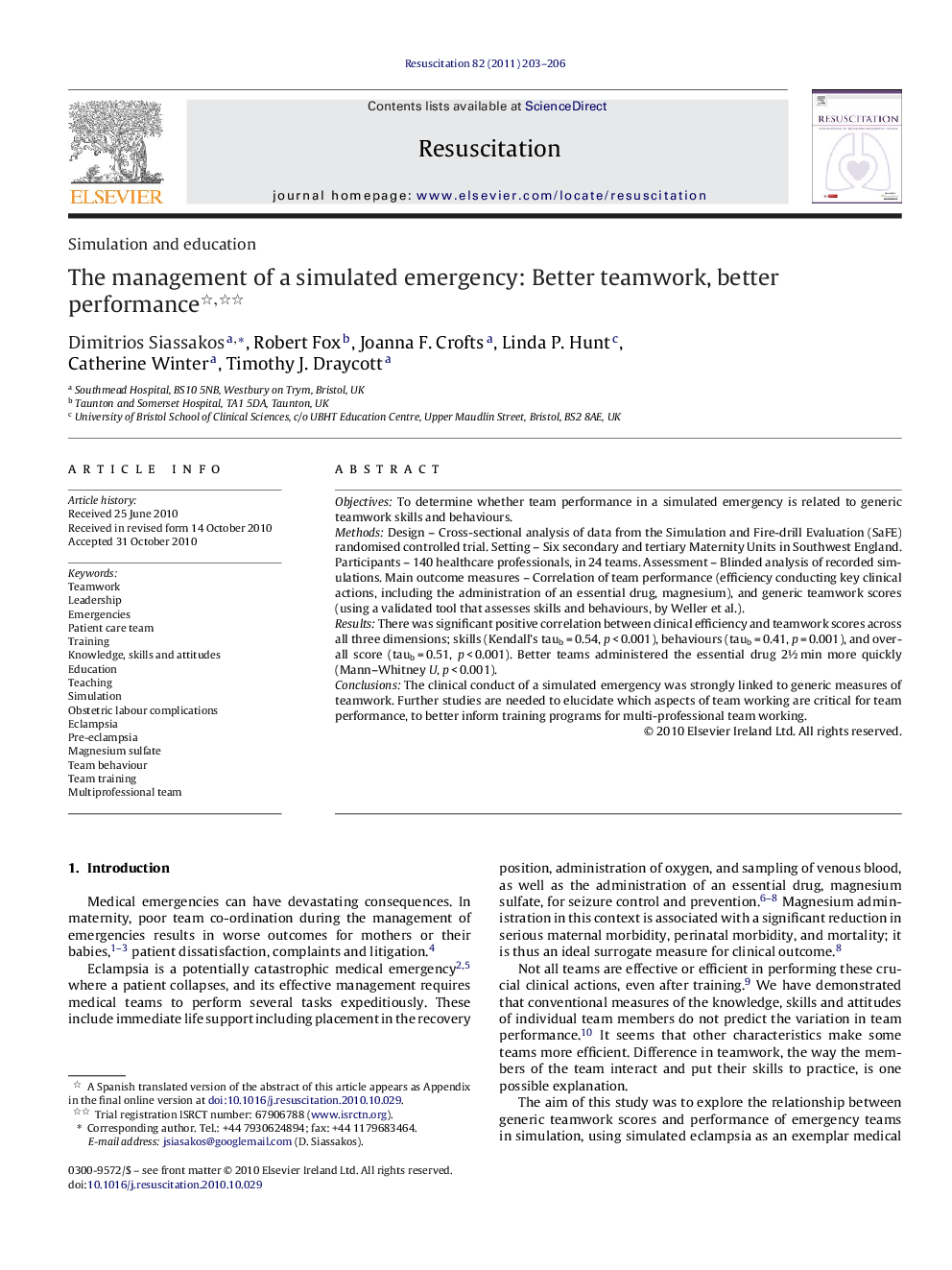| Article ID | Journal | Published Year | Pages | File Type |
|---|---|---|---|---|
| 3009136 | Resuscitation | 2011 | 4 Pages |
ObjectivesTo determine whether team performance in a simulated emergency is related to generic teamwork skills and behaviours.MethodsDesign – Cross-sectional analysis of data from the Simulation and Fire-drill Evaluation (SaFE) randomised controlled trial. Setting – Six secondary and tertiary Maternity Units in Southwest England. Participants – 140 healthcare professionals, in 24 teams. Assessment – Blinded analysis of recorded simulations. Main outcome measures – Correlation of team performance (efficiency conducting key clinical actions, including the administration of an essential drug, magnesium), and generic teamwork scores (using a validated tool that assesses skills and behaviours, by Weller et al.).ResultsThere was significant positive correlation between clinical efficiency and teamwork scores across all three dimensions; skills (Kendall's taub = 0.54, p < 0.001), behaviours (taub = 0.41, p = 0.001), and overall score (taub = 0.51, p < 0.001). Better teams administered the essential drug 2½ min more quickly (Mann–Whitney U, p < 0.001).ConclusionsThe clinical conduct of a simulated emergency was strongly linked to generic measures of teamwork. Further studies are needed to elucidate which aspects of team working are critical for team performance, to better inform training programs for multi-professional team working.
